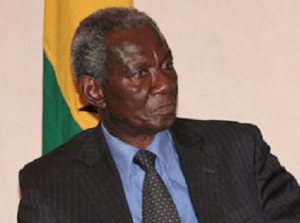Chamber of Independent Power Producers, Distributors and Bulk Consumers launched

The Chamber of Independent Power Producers, Distributors and Bulk Consumers (CIPDIB–Ghana) was on Tuesday launched to reduce the burden on government in the area of policy formulation and regulation of the energy sector.
The Chamber among others would help to create a platform for advocacy towards influencing legislation in the area of energy, serve as an incubator for generating ideas and share best practices among the players of the industry.
The CIPDIB is expected to ensure coordination of the players in the industry towards introducing innovation in the energy generation and energy mix for a sustainable energy supply.
The Chamber was launched in Accra on the theme: “Promoting Sustainable Energy Sector and Quality Service Delivery for the Socio-economic Development of Ghana”.
Mr Kwame Pianim, the Chairman of the Chamber, in an address said a stable and sustainable energy sector is key in economic and social transformation of the country.
Mr Painim, an economist and investment consultant, said the key element for stabilizing the energy sector is to ensure that all key players are in sound financial position, which would open the key institutions to long-term market demand driven plans to respond effectively to consumers.
He urged all sector players to embrace CIPDIB as part of their decision-making process and support the Chamber to be in a position to research and provide objective facts as well as best country practices.
He said “when the Chamber is supported to deliver on its objectives, your deliberations with government and regulators on policy decision-making may be surprisingly more productive than your solo efforts of the past”.
Dr Nii Darko Asante, the Director of Technical Regulation at the Energy Commission, said the cost of power in the country was among one of the highest across the globe because of high cost of production, emanating from poor contracts and large sector debt.
He said there was currently an excess supply of energy unlike the shortages that were recorded earlier and the country was still facing challenges due to balance between supply and demand.
Dr Nii Darko said for the country to achieve sustainability in energy sector, there was the need to balance supply and demand, adding that “We have to plan things well to ensure that … we will not have too much capacity and we will also not have too little to meet the needs of the country”.
On his part, Dr Simons Yao Akorli, the Director of Research and Economics at the Public Utilities Regulatory Commission, said the greatest challenge facing the country in the energy sector is pricing.
He said for sustainability in the energy sector, there must be satisfaction and balance for both consumers and providers or producers, which described as a very difficult task.
Dr Akorli said the pricing and what consumers pay with regard to electricity production to supply, there would be the need to consider the costs of generating the power for production, transmission, and distribution.
Mr Elikplim Kwabla Apetorgbor, the Founder of the Chamber in an interview with the Ghana News Agency said it had become necessary for CIPDIB because since the deregulation of the sector, there had not been unity among players in the sector.
This, he said, had affected the sector’s growth.
He said the unveiling of the Chamber would help players in the sector to form synergy, shared ideas and present a solid front for better results.
Source: GNA
